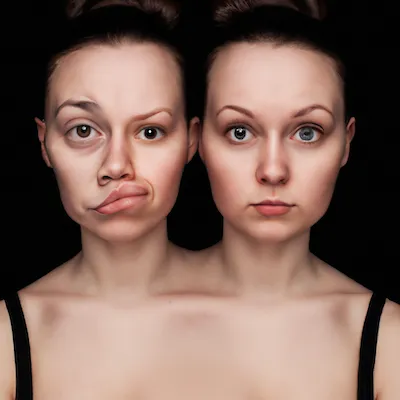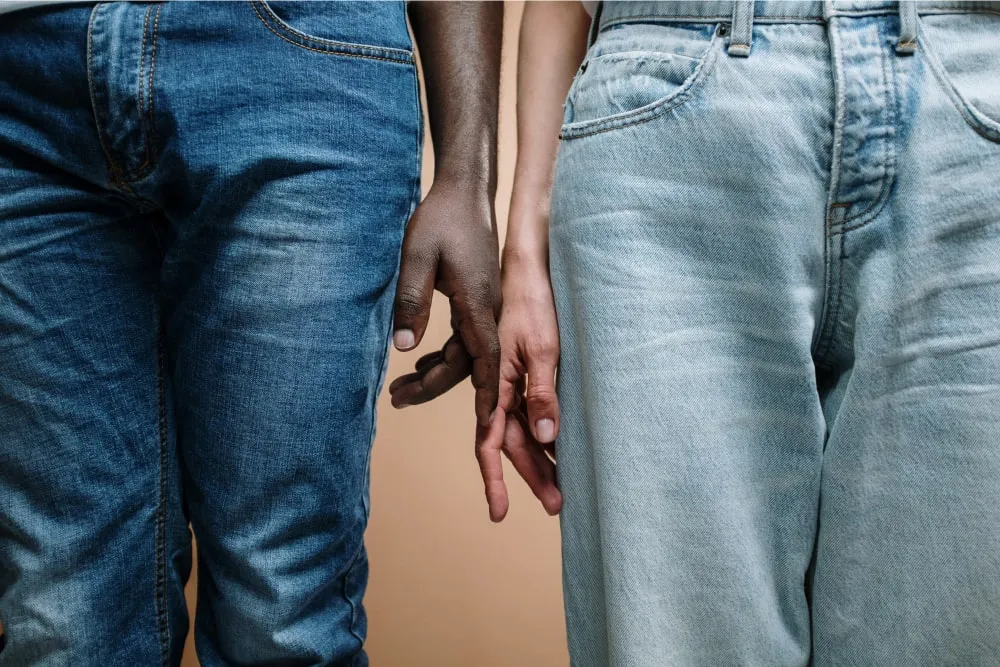How social media is damaging mental health
Facebook’s internal research is eye-opening
Facebook, which owns Instagram, conducted internal research about the impact Instagram has on the mental health of its younger users—none of which it intended to make public. Recently, The Wall Street Journal gained access to the results and published them in a news report. As many people already suspected, the results showed just how detrimental social media is on mental health and body image.
Here are the highlights: (1)
- 6% of US users and 13% of UK users said their suicidal thoughts and ideation were due to Instagram.
- More than 40% of Instagram users in the US and UK reported feeling unattractive and that those feelings appeared when they began using Instagram.
- Teens believe Instagram is responsible for increased depression and anxiety.
- Teens reported feeling addicted to Instagram and unable to control or reduce their usage.
- Instagram encourages social comparison more than other social media apps, such as Snapchat and TikTok—as a result, Instagram users are more likely to judge their own attractiveness and worth based on comparisons with other users.
Studies on body image, loneliness, and depression
People who were born after 1995 are in a unique position in that they don’t remember a world without the internet. They essentially grew up online and on social media apps, making them even more susceptible to online influence, such as celebrities, influencers, and the picture-perfect lives of their friends, family, and acquaintances. Many studies focus specifically on how social media has affected the lives of these young users.
One 2019 study from York University in Canada examined the effects of social media on the body image of female undergraduate students. The study revealed that women who commented on a post of an attractive female peer were more likely to report negative body image than those who interacted with a family member’s post. (2) These findings indicate that appearance comparisons on social media apps may cause and exacerbate body image issues in young women.
Another study on social media and mental health, conducted by the University of Pennsylvania, studied the correlation between time spent on social media and feelings of depression and loneliness. The findings revealed that undergraduates who were asked to limit their daily social media use to ten minutes per app for Instagram, Facebook, and Snapchat reported decreases in the following areas: (3)
- Depression
- Loneliness
- Anxiety
- Fear of missing out
Unpacking social media and eating disorders
It’s no secret that there is a significant link between social media and eating disorders in teens and young adults. In fact, social media use has been shown to negatively affect the following: (4)
- Body image
- Social comparison
- Disordered eating
- Depression
Moreover, heavy Instagram use is associated with higher rates of orthorexia nervosa, an unhealthy obsession with eating healthy food that can lead to serious medical consequences and extreme psychological suffering . One study of social media users who follow health food accounts found that the prevalence of orthorexia nervosa among the study participants was nearly 50%—this is alarming since only about 1% of the population has this eating disorder. (4)
Countless studies have revealed the link between heavy social media use and poorer psychological well-being. Here are some other findings on social media and eating disorders in teens: (5)
- Social media use is associated with body image issues and eating disorders.
- Posting, viewing, and commenting on image-based social media content increases the risk of body image issues.
- Passive social media use (scrolling without posting) can lead to social comparison, which often causes low self-esteem, body image issues, and disordered eating.
- Following fitness accounts and celebrities may increase the risk of body image issues and eating disorders.
- Compared to non-users, Instagram users reported higher body surveillance, or habitual monitoring of their appearance.
- Instagram users also reported higher rates of appearance-related pressure, lower body satisfaction, and eating pathology.
- Girls with Instagram accounts reported stricter exercise regimens than those without Instagram.
- Instagram users who followed people they deemed to be more attractive or superior to them reported decreases in self-rated attractiveness, body satisfaction, and facial satisfaction.
The evidence is clear—social media apps, particularly Instagram, have harmful effects on many aspects of a user’s mental health, particularly self-esteem, body image, and disordered eating.
Do companies have a social responsibility to improve body positivity?
Facebook’s minor efforts
Social media companies contribute to problems with body image and eating disorders every day. And many of them accept little to no responsibility for the harm they cause. Facebook’s internal research is a great example. They had no plans to publish these telling studies, nor were executives transparent when asked about the impact Instagram had on young users.
However, Facebook does claim that they are attempting to offset the negative influence of Instagram by listening to and implementing user feedback. For example, because teens reported that like counts gave them anxiety, Facebook created an Instagram feature that allows users to hide like counts if they wish. Instead of seeing how many people liked their post, they can only see the username of a follower who has liked the post, followed by the phrase “and others.”
While this feature may help to reduce social pressure in teens and young adults who use Instagram, it’s just a drop in the ocean as far as undoing the deep-seated issues perpetuated by the app and gives a false sense that Instagram is really doing anything about the damage being done.
Instagram vs. reality: Navigating body image issues
Scrolling through Instagram can be a dangerous game. Post after post, users see beautiful people, fit bodies, flawless skin and faces, and gorgeous hair—not to mention the endless photos of a perfect life in which no one ever fights, everyone is in love, and people are always on vacation or “finding themselves.”
Retouching apps increase social pressure
Every Instagram post may leave users wondering which photos have been edited and enhanced and which have been untouched. Popular retouching apps, such as Facetune, CreamCam, RetouchMe, and AirBrush, allow social media users to present the most attractive version of themselves. The use of these apps perpetuates body image issues, particularly in teens. And retouching apps don’t just harm those who are viewing the edited photos—they also reflect on the poster’s mental health and body image.
According to research, Instagram users who edit, manipulate, and take more selfies before choosing one to post report higher levels of: (5)
- Body dissatisfaction
- Facial dissatisfaction
- Low self-esteem
Many teen girls feel compelled to edit their photos before posting because of pressure to present only their best selves. One Indonesian study on teen girls and photo editing found that the most important motivation for sharing photos was to show their best body image according to social standards. (6) Some of the reasons these teens touched up photos before posting on Instagram included: (6)
- Dissatisfaction with their body image
- Insecurities related to appearance
- Fear of negative comments
The vicious cycle of social media engagement
The process of taking selfies, editing and posting them, and then scrolling and viewing other people’s edited photos is a vicious cycle that can be difficult to escape. While prior generations felt immense pressure from magazines, they could choose to avoid them if they wanted.
Meanwhile, today’s teenagers have non-stop access to on-line influences, consuming social media content, interacting with their friends, sending memes, posting stories, starting live videos, and beyond, essentially introducing an intrusion of images into their vulnerable and developing psyche that leads to serious psychological outcomes. Plus, the fear of missing out can be a strong motivator in continuing to use Instagram despite its devastating effects on body image and eating disorders in teens. But the good news is, there are ways for teens and young users to prioritize their mental health while still using social media.
Tips for safer online engagement
While some people in recent years have chosen to delete their social media accounts to improve their well-being, it’s understandable that not everyone wants to do that. But there are ways for social media users to monitor their Instagram use and keep themselves safe while scrolling.
Here are some tips for safer online engagement:
- Log off social media for the day if something is triggering
- Download and use an app that helps reduce screen time, such as Freedom, Moment, ZenScreen, and more
- Block and report trolls
- Unfollow anyone whose posts are triggering or contribute to body image and eating disorders
- Follow body-positive role models and socially-conscious accounts
- Reduce social media use around bedtime and when first waking up
- Consider deleting apps that are not conducive to mental and physical well-being
- Parents, loved ones and teens can all communicate around healthy use of social media, and consider time limitations and other mediators to their excessive use.
Support for body image issues and eating disorders
Body image issues and eating disorders can be extremely distressing, lead to serious medical and psychological consequences, and can negatively affect the lives of those impacted by them, but help is available. There are many ways people struggling with an eating disorder can take care of themselves and their mental health.
Here are some resources and treatment options:
- Find a therapist who specializes in treating eating disorders
- Attend a support group, such as the Alliance for Eating Disorder Awareness
- Attend group counseling for teens with eating disorders
- Seek help from a professional who is familiar with eating disorders
Creating a safety plan
Additionally, individuals struggling with eating disorders, low self-esteem, or body image issues can create a safety plan to follow if they are triggered by something online or in real life. This crisis or safety plan may include:
- A list of supportive people they can reach out to for help
- Phone numbers of mental health providers, such as their therapist
- A list of coping mechanisms that historically have worked for them
- A reminder to practice positive self-talk
- A reminder to use positive affirmations and gratitude
- Take a pro-active stance around social media and block accounts that are detrimental, while simultaneously following body positive accounts.
Everyone’s coping strategies may vary depending on what works for them, but the important thing is to find what works and to use these skills whenever they are feeling triggered by social media.
Eating disorder treatment at Within Health
Another option for eating disorder support is to sign up for a virtual treatment program through our app, Within Health.
We provide effective and convenient treatment for eating disorders, all within the comfort of patients’ homes. We tailor our treatment programs to the unique needs of our patients, providing everyone with an individualized experience. Recovery is possible with the support of a community and a specialized care team. We are here for you!








%2520THUMB.webp)












